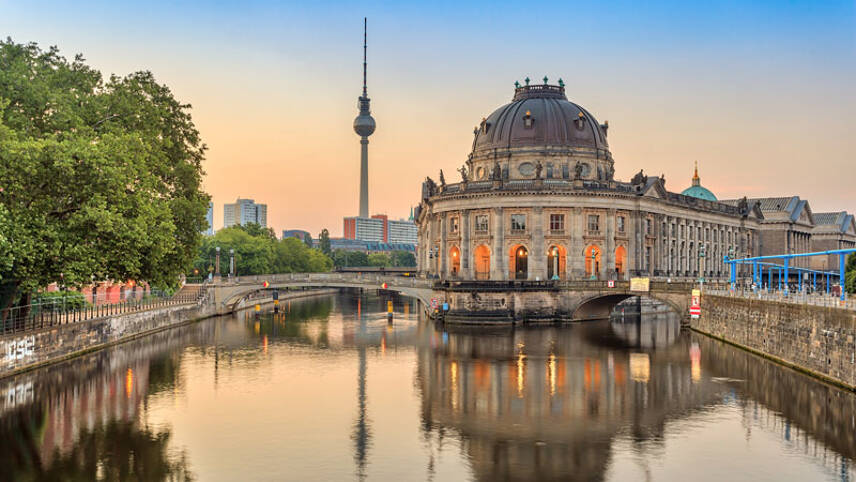Register for free and continue reading
Join our growing army of changemakers and get unlimited access to our premium content

Pictured: Berlin
The German ministerial cabinet hoped on Wednesday (16 August) to pass a bundle of tax breaks and rebates to overcome the current economic slump and facilitate investments in energy efficiency.
However, according to government sources, the adoption was delayed due to resistance from Paus (Greens), who had her proposal for €12bn in family benefits denied earlier this year, Handelsblatt reports.
The delay in adoption is a “missed opportunity for the economy,” Achim Dercks, deputy director of the German Chamber of Industry and Commerce (DIHK), told EURACTIV.
“Businesses are squeezed at every turn, and the burdens of bureaucracy, costs, taxes and a shortage of skilled workers are increasing daily,” Dercks said. “A spirited impulse from the federal government would have been urgently needed here to set the framework conditions as quickly as possible so that the economy can develop again,” he added.
According to the newspaper, Paus has put in a de-facto veto without the knowledge of her party colleague Economy Minister Robert Habeck (Greens).
“It is regrettable that a cabinet decision was not possible today despite an agreement with the Federal Ministry of Economy,” German Finance Minister Lindner (FDP) told dpa after the meeting. “Everyone should know that all social spending needs a strong economic foundation”.
“Families with children also need good jobs,” Lindner added.
Wednesday’s cabinet meeting was the first after the summer break and a bad start for the governing coalition of German Social Democrats (SPD/S&D), Greens, and liberal FDP (Renew Europe). Internal disputes over budgetary questions and rules for heating installations had already marked the first half year of 2023.
Poor German economy performance
As Germany performed worst among major economies in terms of economic growth in 2023, the finance minister hopes to overcome this by facilitating private investments.
“We have to do better here. We have lost growth momentum,” Lindner said in a video statement when announcing the first draft of the law in July. “The prerequisite for a social society, that we achieve our ecological goals, and that one can also advance economically on an individual basis, is a strong economy,” he added.
In the draft, Lindner proposed several tax benefits for companies that should reduce their tax burden and reporting obligations while motivating them to invest in energy efficiency.
In the draft, 15% of investments into the energy efficiency of production sites could be deducted from tax obligations as an “investment premium”, which the draft law says would be only the “first step” towards an even broader tax credit scheme for, among other things, investments in decarbonisation and carbon capture and storage technology (CCS).
The bundle also included improved possibilities for firms to weigh losses against taxable profits of the past three years and increased some existing tax rebates to relieve companies.
While Lindner advocates an expansive and stimulating fiscal policy in this instance, Lindner has repeatedly advocated for a tighter fiscal policy, calling for broad budgetary cuts to comply with the constitutional “debt brake” and to fight inflation.
Other finance laws adopted
The blockade does not affect other laws the finance minister proposed on Wednesday, including financing conditions for startups, the federal budget for 2024 and the coming years, and a €212bn “climate and transition” fund.
The funds, which will also be used to pay the subsidies for the recently announced chips factories by Intel and TSMC, will be partly funded by an increase of carbon taxation for buildings and road transport, which will rise from €30 per tonne of CO2 to €40 as of 2024.
While the law on startup financing can help to make “Germany the world market leader for startups”, according to Christian Miele, head of the German Startup Association, representatives of the chemical industry fumed at the end of a compensation scheme that would see energy-intensive industries exempted from electricity taxation.
“Abolishing the peak compensation without replacement is a dangerous decision,” said Wolfgang Große Entrup, head of the Chemical Industry Association VCI.
“Energy costs in Germany are too high; the location is simply no longer competitive,” he added.
Jonathan Packroff, EurActiv.com
This article first appeared on EurActiv.com, an edie content partner


Please login or Register to leave a comment.